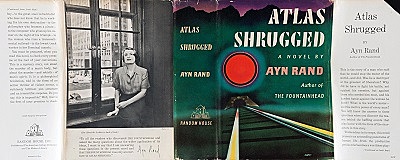The Intellectual Portrait Series: A Conversation with John Hospers
John Hospers talks about his interests in moral philosophy, aesthetics, the nature of liberty, and his activity as the first Libertarian Party candidate for President in 1972.
Watch the video on our YouTube channel.

Below are some prompts for further conversation.
by James Kurlich
1:40 Early Influence and Direction
I- Which figure does Hospers credit for driving his interests more toward political philosophy and political involvement, and how?
II- What were the first philosophical topics that interested Hospers in his youth, and why? What would you consider to the ones that first interested you?
9:40 Aesthetics and Philosophy
III- Why does Hospers dislike closed philosophical systems? What does this say about his methodology?
IV- What does Hospers say about how meaning can be derived from producing and experiencing art?
15:16 Ayn Rand
V- What value does Hospers believe that he provided Ayn Rand in their discussions on Atlas Shrugged?
VI- Hospers largely agreed with Ayn Rand in terms of their political philosophy, but seems to have qualms with her methodology. What does this say about political convictions and how people with different backgrounds can interact with one another?
24:06 Extended Works
VII- Why does Hospers believe that he made the right choice to branch out into various fields of philosophy rather than remaining in just one? How does Hospers’ method of problem solving influence his taking of positions on political issues such as diplomacy and forms of economy?
VIII- In brief, how does Hospers view the complex issue of free will in terms of justice and politics?
32:43 Politics and Prospects for the Nation
IX- What part of engaging in politics was most difficult for John Hospers?
X- Why does Hospers have a mistrust for anarchism as an extension of libertarianism?
XI- Why does Hospers think that the United States, a classical liberal nation at heart, has seen the intellectual downslide into statism and collectivism in its universities? Why is liberty always under assault, according to Hospers?
XII- What does Hospers think about natural rights both personally and as a tool for explanation to others?
XIII- Why does Hospers have hope for the Libertarian Party, even though it currently has no prospects of widespread victory on a national scale? To what extent do you think that hope is still valid today?
48:30 Art and Values
XIV- What conclusions has Hospers reached about the values that can be found in art?
XV- What does Hosper’s response to Peter Singer say about his own values?
XVI- What is the difference between virtue and justice, and how do the two interact according to Hospers?
The Intellectual Portrait Series: A Conversation with John Hospers (Indianapolis: Liberty Fund, 2001).